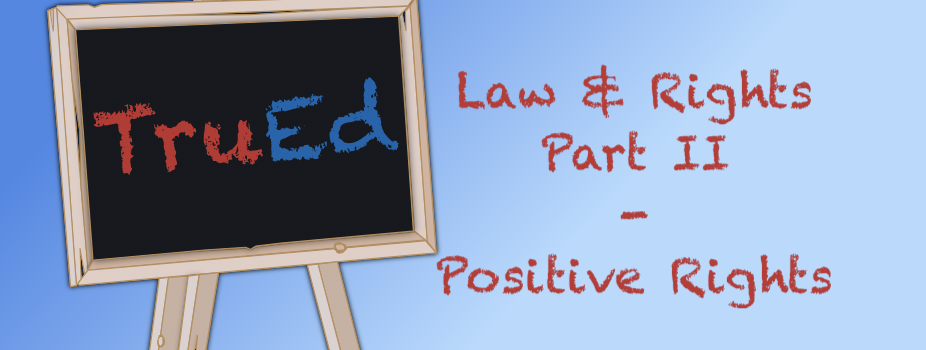This is part two of a three part series on the law and rights.
Previously we looked at the importance of negative laws. Now we are going to see how negative laws bring us positive rights.
We hear a lot of talk about rights. Hear about competing rights, and in such cases we wonder whose rights trump whose. Everyone seems to be in agreement that human rights are important, but what are rights, and where did they come from?
If we learnt anything from lockdowns, it’s that our civil governments want to take charge of our rights. They want to decide when we can do basic things like leave our homes. This is a very worrying development for anyone who has any interest in freedom. So an important fact to remember is that whoever gives you a right can easily take it back from you. And in essence, it’s no longer a right but a privilege. A right is something that is not dependent on circumstances. It is ours no matter what else is happening. That is why we must look for something less capricious than our politicians for our rights.
It may surprise you to learn that rights originated in the Ten Commandments. Since the whole concept of being written on stone came from the Ten Commandments, we can be certain they won’t change under any circumstances. For example if the law states, “Do not kill,” by that law we know that everyone has a right to life. Further, I have the right to protect myself if someone else tries to kill me, and it could be argued I have a duty to protect another whose life is in danger. I have a right to defend myself and others from being killed.
Please bear with me as I take you through these commandments to show you your God-given inalienable rights:
| Commandment: | Right: |
| You shall have no gods before me. You shall not make any idols to worship. | Freedom of religion, thought, conscience, speech, assembly |
| You shall not kill. | Life, self-defence |
| Remember the Sabbath day and keep it holy. | Rest from work |
| Honour your father and mother. You shall not commit adultery. Do not covet. | Family life, free from external interference |
| You shall not steal. | Private property |
| You shall not bear false witness. | Reputation free from slander. |
We can conclude, therefore, that negative laws not only protect us from tyranny but also give us explicit rights.
In the third part, we will look specifically at children’s rights.


